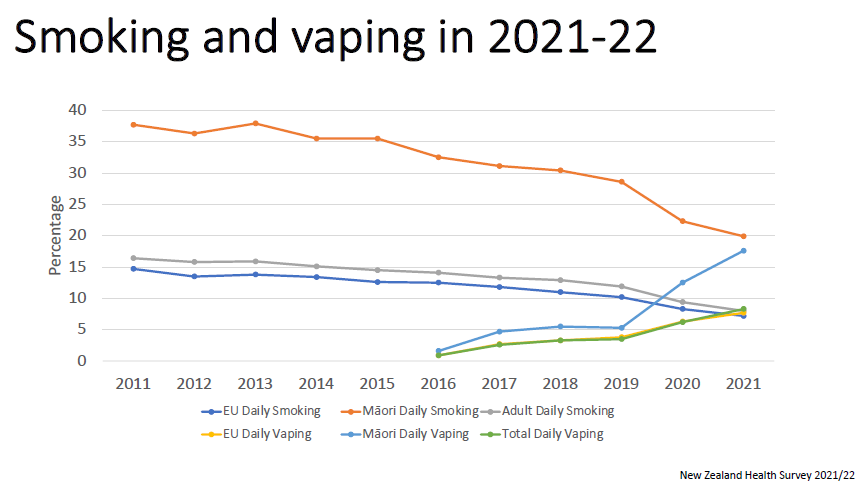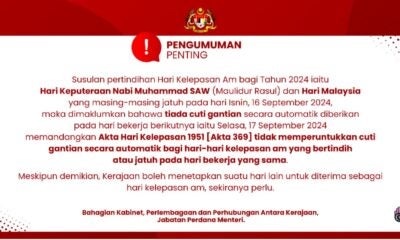It’s a widely known fact that tobacco is now considered a global burden of disease. The World Health Organization (WHO) stated tobacco is the cause of death for over 8 million people each year. This also makes tobacco one of the leading causes of preventative cancer. Because of this, it’s undeniable that tobacco control is absolutely vital for any society and can be presented in various ways such as:
- Spreading education & awareness
- Making age-related sales restrictions
- Providing treatment for smokers to quit, etc.
However, tobacco control is not as simple as it seems because we also need to take into consideration some modern challenges that come with tackling tobacco harm such as the constant fear-mongering in media which fuels the spread of fake news. In order to dive into the heated topic of e-cigarettes, WORLD OF BUZZ had the privilege of attending The E-Cigarette Summit in London back in December 2022 where we heard a number of insightful talks from reputable speakers from all over the world. The speakers presented various topics pertaining to e-cigarettes and we’ll be summarising the key points from that day that we believe Malaysians can benefit from!



1. What are the functions of flavours in e-cigarettes? Is it for better or worse?

Vape is a pretty controversial topic in Malaysia, particularly due to the fact that it is still not yet regulated in this county which may cause illicit products to find their way into the market. However, Malaysians also often argue about the various flavours that are available with vape products. While smokers might find it helpful, non-smokers believe that these flavours will end up being way too addictive for smokers.
In a presentation by Prof Maciej L. Goniewicz (PharmD, PhD, Professor of Oncology at Roswell Park Comprehensive Cancer Center), he mentioned that there are indeed a few cons to having such a wide variety of flavours, such as:
- Influencing tobacco initiation among youth as it can seem very appealing.
- Affecting the level of toxicity in the e-cigarette (depending on the type of chemical used for the flavours).
- Impacting users’ behaviour in the sense that they might smoke more of the e-cigarette as compared to a normal cigarette.
However, he also went on to explain that these flavours do have its importance for both adults and youths, namely:
- For youths: 40% of the surveyed youth mentioned they picked up an e-cigarette because it tastes good. However, there is insufficient evidence that the usage of flavours in e-cigarettes is directly associated with the uptake of smoking.
- For adults: They use e-cigarettes with flavouring as a means to cut down or completely stop smoking cigarettes. It is also proven that the usage of flavours can improve the chances of adult smokers quitting cigarettes completely.
2. Are the policy changes on smoking and vaping designed to protect young people?

Our country’s previous notion to enact the Generational End Game (GEG) was met with a lot of debate from Malaysians. While some fully supported it in hopes that it will tackle the smoking problem among Malaysians, others are worried about how the ban might worsen the issue of illicit markets in the country.
If we take a look at what’s happening in the UK, Professor Robert West (the Professor Emeritus of Health Psychology at University College London) shared that flavoured vapes could be banned in line with the EU’s plan to fight cancer. However, he also raised the question of whether this ban will actually be helpful or detrimental to their society. Professor West argued that introducing tighter regulations will impose several consequences such as:
- Forcing users to turn to illicit and dangerous markets.
- Causing smokers to relapse back to normal cigarettes if they can no longer find an alternative in the market.
- Making smokers feel demotivated with their attempt at quitting.
Ultimately, this kind of policy change will leave a huge impact towards smokers and vapers, as highlighted in a study where 50% of smokers stated they believe they would have been unsuccessful in their attempt to quit if e-cigarettes are banned. Instead, Professor West suggests other alternatives that can be done apart from banning the products, such as:
- Restricting the age of sales for e-cigarettes to avoid youth uptake.
- Imposing rules for ads and marketing to ensure e-cigarettes are not made to look more attractive.
- Removing kid-friendly flavours to prevent more youths from taking it up for fun.
3. New Zealand’s GEG Bill – What can Malaysia learn from it?

When it comes to implementing the Generational End Game (GEG), New Zealand is often talked about as the country that has succeeded in this mission. The New Zealand GEG bill was approved in 2021 and the country aims to reduce their national smoking rate to less than 5% by 2025. However, as presented by Ben Youdan (Director at Youdan Consulting and Advisor at Action for Smokefree 2025 (ASH)), the bill was first proposed back in the early 2000s. The country also implemented several aggressive smoke-free policies such as implementing heavy taxes, utilising social marketing and investing in clinical smoking as a ‘disease’ model.
In 2021, they finally came out with the Smokefree Environments and Regulated Products Amendment Bill which entails several policies regarding smoking, such as:
- Heavily restricted marketing
- Partial flavour ban
- Caps on nicotine
- Ban on oral tobacco
- Requirement of ‘stop smoking services’ to support clients who vape to quit smoking
- Government-funded vape information and quitting campaigns
As for the direct effects of this bill, statistics from the New Zealand Health Survey 2021/2022 found that there was a huge decrease in daily smoking and an uprise in daily vaping from 2021 to 2022 in New Zealand.

4. What is the current situation regarding e-cigarettes in low-to-middle-income countries (LMIC)?

WHO has highlighted that over 80% of the world’s smokers live in low-to-middle-income countries (LMIC), which Malaysia can definitely relate to. Thus, Dr Sivakumar Thurairajasingam (Associate Professor in Psychiatry and Head of the Clinical School Johor Bahru, Monash University Malaysia) presented some insightful data concerning tobacco usage in Malaysia and Malaysians’ perception towards e-cigarettes.
According to the Asia Pacific Journal of Public Health (2019), it was found that 49% of current smokers had attempted to quit at least once in the past 12 months but only 1 out of 3 of those smokers managed to successfully quit. The study also found that smokers who are likely to attempt to quit smoking involve current smokers with low nicotine addiction and smokers aged below 45 years. Meanwhile, factors that are significantly associated with smoking cessation include:
- Being married
- Being in an older age group
- Having tertiary education
In terms of the prevalence of e-cigarettes among Malaysian adults, it was found that 70% of e-cigarette users are conventional cigarette smokers and only 14% are former cigarette smokers. In Malaysia, e-cigarettes are mostly associated with a young and educated male audience.
Based on the Journal of Community Health (2016), a study measured the reason for using e-cigarettes and intention to quit among Malaysians and it was found that 88% of smokers are using it as an aid to quit the use of tobacco cigarettes. Additionally, based on a journal called the Tobacco Induced Diseases (2020), it was reported that respondents were more likely to be long-term e-cigarette users if they were in an older age group. These smokers also perceived that using e-cigarettes has helped them to quit smoking. However, when it comes to tobacco harm reduction (THR) products, there are several factors that contribute to resistance to THR in Malaysia which include:
- Government policies and regulations.
- Bans on safer nicotine products.
- Flawed public health information.
- Sensational media coverage.
A survey from Datametrics Research & Information Centre (DARE) also asked Malaysians about their thoughts on introducing THR strategies. The survey found that 80% of Malaysians believe that the adoption of THR strategies will help smokers quit traditional cigs while 58% said that the Malaysian government must be involved in implementing THR strategies. This proves that Malaysians are becoming more aware of THR strategies but progress is definitely slow and needs more involvement from policymakers.
Based on the presentations done by these various distinguished speakers, we can see that tobacco is a real emergency worldwide. To combat this problem, THR products are also rising in popularity globally but there are still a lot of concerns surrounding them. From what we can learn from the summit, Malaysia is not the only country having doubts about these alternatives.
However, we can still refer to the scientific facts that prove THR products present way less risk as compared to continued smoking. These presentations also showcased some good examples and lessons on tobacco control policies from other more advanced countries which Malaysia can learn from in order to avoid missteps in how we handle this issue.
Let’s hope both our rakyat and our policymakers will be more open to learning about e-cigarettes or tobacco control policies so we can come together and tackle the long-standing issue of tobacco in our nation!




































